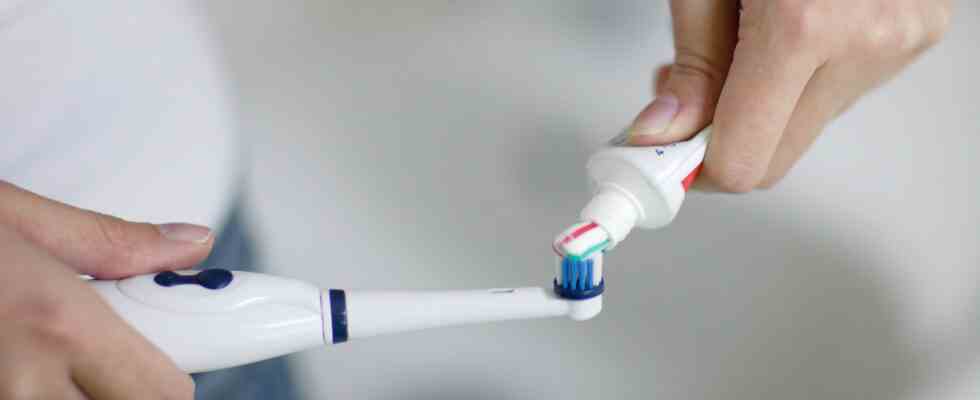Status: 06/22/2022 2:46 p.m
Stiftung Warentest complains that toothpaste often contains titanium dioxide. The color pigment is suspected of damaging the genetic material – and is therefore banned in food in the future.
According to Stiftung Warentest, many toothpastes are sold with unnecessary and possibly harmful colorings. As the product testers announced today, 21 of 31 toothpastes tested contained titanium dioxide. The dye gives the toothpaste a bright white colour, but is suspected of damaging the genetic material if it gets into the body.
“Since toothpaste can sometimes be swallowed when brushing and titanium dioxide is unnecessary for dental care, Stiftung Warentest recommends toothpaste without the dye for reasons of preventive consumer protection,” said the non-profit consumer organization.
Prohibition in food
Titanium dioxide was considered harmless for a long time and used to be contained in baked goods, for example. In May 2021, however, the European Food Safety Authority classified the substance as “no longer safe”. From next August, titanium dioxide will be banned in food throughout the EU. It is still allowed in cosmetics such as toothpaste.
According to Stiftung Warentest, however, number paste usually only contains up to one percent of titanium dioxide – a white color pigment with high opacity. It is also added to lipsticks or sunscreen. If foods contain the pigment, consumers can tell by the additive “E 171”. Cosmetics are marked with the words “CI 77891” or “Titanium Dioxide”.
Fluoride against tooth decay
The product testers recommend making sure that there is enough fluoride when choosing toothpaste. The substance is important for protection against tooth decay. Four of the products tested did not contain any fluoride and were therefore rated as unsatisfactory.
Five toothpastes were able to complete the product test with the best rating of “very good”. According to Stiftung Warentest, the cheapest test winners were already available for less than one euro per 100 milliliters.

